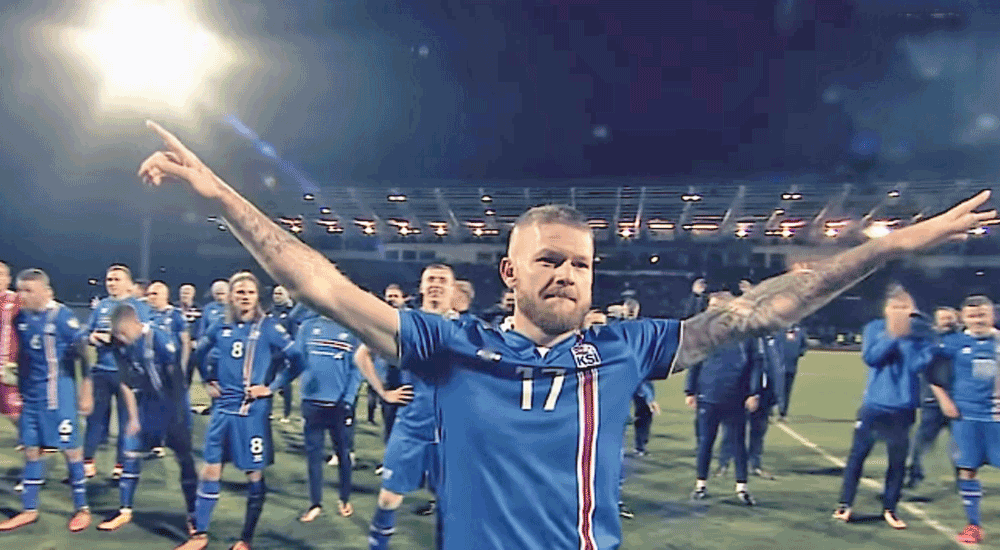Iceland, an island with 350,000 people, continues on their magical football run by becoming the smallest country ever to qualify for the World Cup.
This was after they beat Kosovo 2-0 on Monday, Oct. 9, to finish top of Group I. One goal in each half by Gylfi Sigurdsson and Johann Gudmundsson ensured Iceland won all five of their home matches and clocked up seven wins in the group.
They booked a place at their first finals in Russia in 2018.
Not down to good luck
This also proved that Iceland's run to the 2016 Euro Cup quarter-finals previously was no fluke.
During that tournament, they beat traditionally superior teams such as Austria and England.
Iceland's starting lineup in 2017 includes four players based in England's second tier, two from the English Premier League, one from Italy's Serie A and one each from the top flights of Denmark, Sweden, Scotland and Russia.
Just two years ago, they were famously known for having players that included a part-time filmmaker and itinerant farmers.
But their coach is famously still a part-time dentist.
Great improvement in five years
For the record, east and west Jurong in Singapore has a population of 357,640.
This means the people from the entire country of Iceland can fit into Jurong estate -- with some room to spare.
Reason for Iceland's achievements
The tiny Nordic country has made great strides in football in just five years.
Iceland Fifa ranking is 22 in 2017. In 2012, it was 133.
The country's vast improvements in football stems from the accessibility of the sport to the entire population -- an explainable fairytale that has been documented.
Football has been prioritised as a result of pouring resources into youth academies and building world-class training facilities, with a large number of the local population becoming certified elite trainers -- a hallmark of Nordic egalitarianism where everyone is given a chance.
To put this openness in perspective: By 2016, one in every 825 Icelandic persons is a qualified coach or holds on to a license that allows them to train others.
In comparison, in England, it is one in 11,000.
The programme of availing elite coaching to people from all walks of life was put in place since the turn of the millennium.
Football pride runs deep in Iceland as well.
When Iceland played Euro 2016 in France, 10 percent of the country's population travelled there to support the team.
If you like what you read, follow us on Facebook, Instagram, Twitter and Telegram to get the latest updates.
